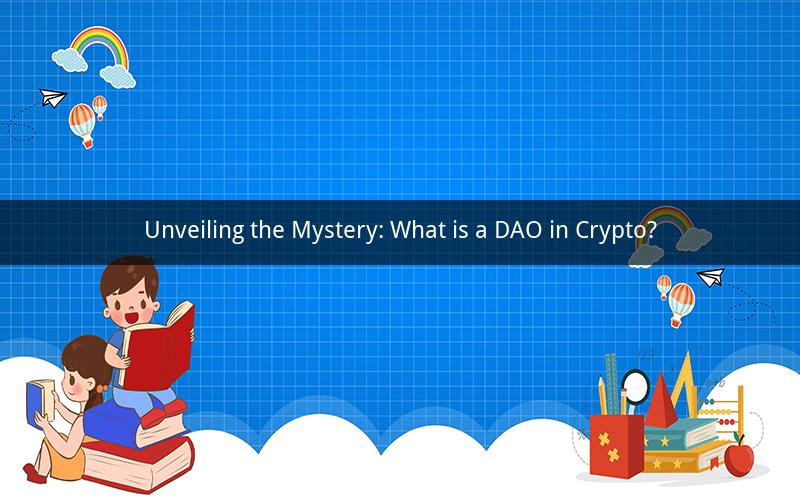
In the ever-evolving world of cryptocurrencies, a term frequently encountered is "DAO." But what exactly is a DAO, and why has it gained such significant attention in the crypto community? Let's delve into the basics and explore the potential of DAOs in the crypto realm.
1. What is a DAO?
A DAO, or Decentralized Autonomous Organization, is a digital entity that operates without a central authority or management. It is built on blockchain technology, primarily using smart contracts, to ensure transparency, security, and efficiency in its operations. DAOs are designed to make decisions collectively by their members, who have a stake in the organization.
2. How Does a DAO Work?
The functioning of a DAO revolves around its governance model, which is usually based on token ownership. Members acquire tokens, often referred to as "shares," to participate in the DAO's decision-making process. These tokens represent their ownership stake in the organization, and the more tokens a member holds, the greater their influence on decisions.
Smart contracts, self-executing contracts with the terms of the agreement directly written into code, play a crucial role in DAOs. They automate various processes, including voting, proposal submission, and execution of decisions. This ensures that the organization operates autonomously and transparently.
3. The Benefits of DAOs
DAOs offer several advantages over traditional organizations, especially in the crypto and blockchain space:
a. Decentralization: DAOs eliminate the need for a central authority, allowing for more inclusive and democratic decision-making processes.
b. Transparency: With blockchain technology, all transactions and decisions are recorded on a transparent, immutable ledger, ensuring transparency and accountability.
c. Efficiency: Smart contracts automate various processes, reducing the need for intermediaries and streamlining operations.
d. Accessibility: DAOs can operate globally, providing equal opportunities for participation and collaboration.
4. Use Cases of DAOs
DAOs have a wide range of applications across various industries. Some notable examples include:
a. Cryptocurrency Projects: DAOs have been used to fund and govern cryptocurrency projects, such as MakerDAO and Ethereum Name Service (ENS).
b. Art and Culture: DAOs have been employed to create decentralized autonomous art projects, such as Art Blocks and CryptoPunks.
c. Real Estate: DAOs have the potential to revolutionize the real estate industry by facilitating decentralized ownership and management of properties.
d. Social Impact: DAOs can be used to fund and manage social impact projects, ensuring transparency and accountability in the use of funds.
5. Challenges and Risks
Despite their numerous benefits, DAOs face certain challenges and risks:
a. Security: Smart contracts can be vulnerable to bugs and vulnerabilities, which can be exploited by malicious actors.
b. Centralization: While DAOs aim to be decentralized, a few token holders can still exert significant influence on decision-making.
c. Legal and Regulatory Issues: DAOs operate in a regulatory grey area, and their legal status may vary depending on the jurisdiction.
d. Scalability: As the number of participants increases, ensuring efficient and scalable operations can be challenging.
Frequently Asked Questions
1. Q: Can anyone join a DAO?
A: Yes, anyone can join a DAO, but participation is often limited to those who hold a certain number of tokens representing ownership stake.
2. Q: How do DAOs make decisions?
A: DAOs make decisions through a collective voting process, where token holders vote on proposals based on their ownership stake.
3. Q: Are DAOs legal?
A: The legality of DAOs varies by jurisdiction, and they may operate in a regulatory grey area.
4. Q: Can DAOs replace traditional organizations?
A: While DAOs have the potential to replace traditional organizations in certain areas, they may not be suitable for all types of businesses or industries.
5. Q: What is the future of DAOs?
A: The future of DAOs seems promising, with potential applications across various industries. However, they will need to overcome challenges related to security, scalability, and legal issues to achieve widespread adoption.